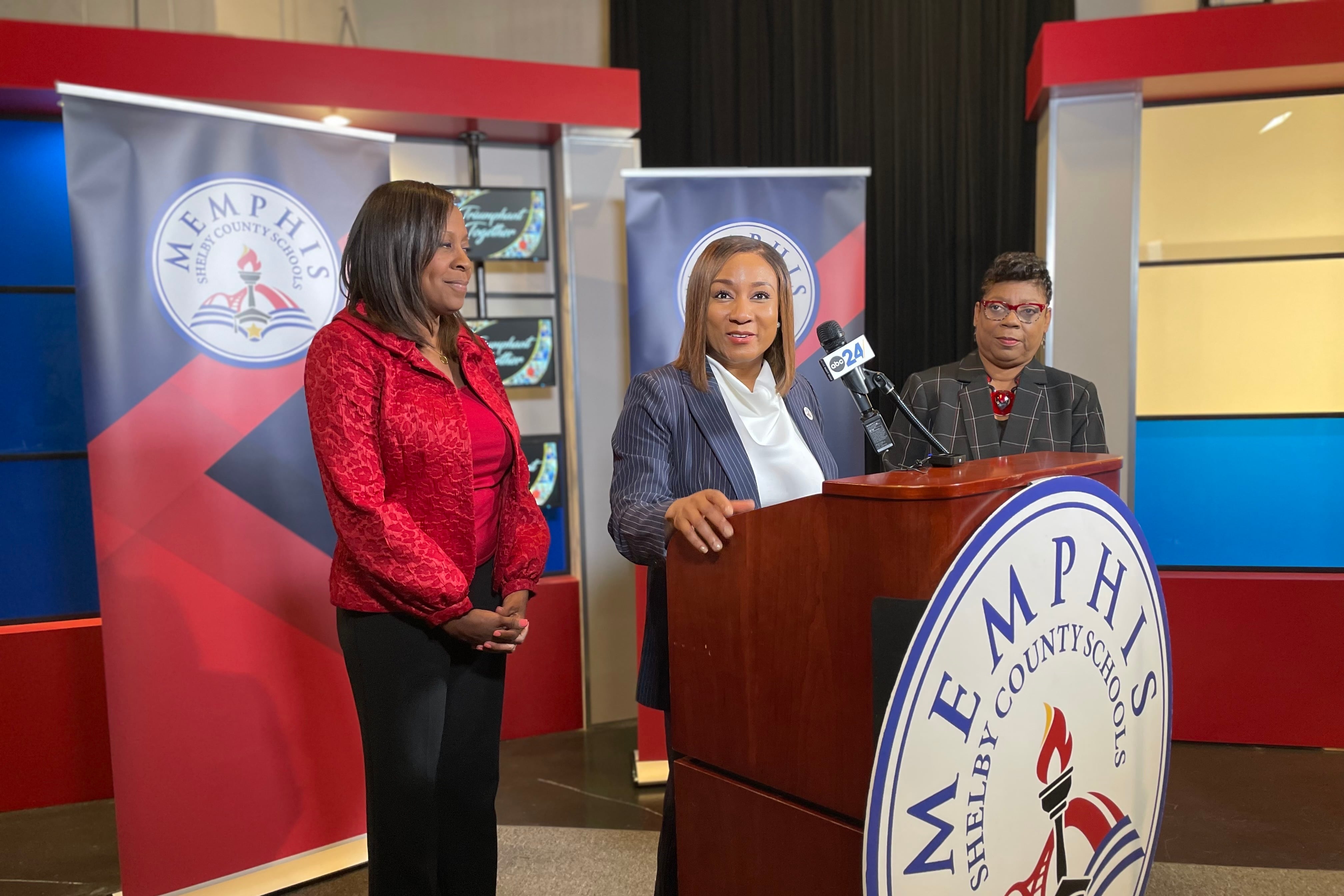After two months of discussions, Memphis-Shelby County Schools board members are ready to put their search for a new superintendent back in motion.
The board is poised for a set of pivotal votes on Tuesday to reactivate the stalled search, including one to settle a question that has sown divisions on the board and in the community since April: whether one of the finalists, interim Superintendent Toni Williams, is qualified under board policy to be a candidate for the permanent job.
Board members also plan to vote on adopting a formal list of qualifications and on whether to expand the pool of candidates under consideration. The board last month signaled its interest in taking both these actions.
Tuesday’s planned votes cap a period of intensive discussions aimed at uniting board members behind a shared understanding of what they want in the next leader of Tennessee’s largest school district, and reassuring the public that MSCS can complete a search with integrity and transparency. They have not set a new target date for getting it done.
Tomeka Hart Wigginton, a former Memphis school board member who has facilitated recent board meetings, has told board members the end date is less important than doing the process right.
“It moves at the pace of trust,” Hart Wigginton said. “And that’s what’s making it hard.”
Said board Vice Chair Sheleah Harris: “I still feel like we’re running in molasses.”
The decisions will clearly have ramifications for Williams and possibly other candidates. But the board’s own image — among Memphians and educators watching elsewhere — is also on the line.
Tuesday’s meeting offers board members a chance to showcase the results of their efforts over the past two months to improve their governance and provide better leadership to a school district whose 100,000 students have urgent academic needs. A successful set of votes would be a step toward regaining public trust that has eroded since former Superintendent Joris Ray departed in scandal last year.
Board compiles its own list of qualifications
MSCS’ search for Ray’s successor ran aground in April, when search firm Hazard, Young, Attea, and Associates presented a slate of finalists that left some board members dissatisfied with the candidates and the process. The top criticism was that board members didn’t have enough input on the criteria and qualifications that Hazard Young used to evaluate candidates and determine the finalists. Board members have acknowledged they didn’t discuss these issues enough publicly.
The discussions since then to produce a proposed set of qualifications led board members to acknowledge that, for the most part, they had more in common than they assumed. Getting there revealed how much they had not communicated about beforehand, and how much they still needed to do.
Many of the qualifications they included in their formal list are similar to what Hazard Young listed in its rubric, but the two lists are not identical. The board’s list also has some overlap with community interests identified in a report by KQ Communications, the PR firm that was working with the board on soliciting public input.
Here’s the full list of proposed qualifications that the board plans to vote on:
- Strategic leadership on budget and finance
- Governance and board leadership
- Community advocate
- Courageous decision maker
- Politically savvy
- Attract, retain, and build capacity of a strong team
- Ability to positively impact culture and climate
- Dynamic, visionary, adaptive leader
- Proven track record of success
- Effective change management
- Strong academic visionary
Board members are expected to learn from Hazard Young whether these qualifications are all represented in the firm’s existing evaluations of candidates, and then determine if any part of the rubric needs to be changed.
Vote would resolve Williams’ status
Along with the search criteria, the board intends to resolve questions about how to apply its existing policies on the minimum job qualifications for a superintendent. That issue emerged as a point of contention after Williams, the interim superintendent, applied for the permanent post, despite reassurances that she didn’t plan to.
Williams, the district’s former finance chief, does not have the minimum in-school experience required for a superintendent under board policy. Hazard Young did not incorporate the board’s experience requirement when it evaluated candidates in the spring, allowing Williams to make the finalist list.
On Tuesday, though, the board will consider the policy in a separate vote. The policy offers the board an option to approve “equivalents” to the required in-school experience. Board members are expected to discuss these options in a committee meeting Tuesday afternoon before the vote.
“You can’t get around your policy,” Hart Wigginton said. “You’ve either got to change your policy, or you’ve got to implement your policy.”
Williams’ contract as interim superintendent is set to expire in August, one year after she was appointed. The board has not yet completed her performance evaluation, which was due May 1 under the terms of the contract.
The board is considering amending the contract in a vote later this month.
Chalkbeat has an outstanding open records request for application materials from other applicants.
The board will begin committee meetings at 3 p.m. Tuesday at the board office at 160 S. Hollywood St. The special voting meeting will begin at 6 p.m. The school board’s website has more information about attending the meeting online or in person.
Laura Testino covers Memphis-Shelby County Schools for Chalkbeat Tennessee. Reach Laura at LTestino@chalkbeat.org.






